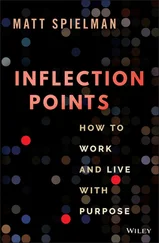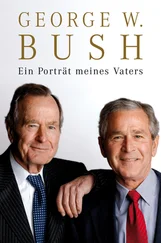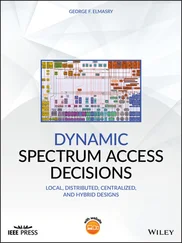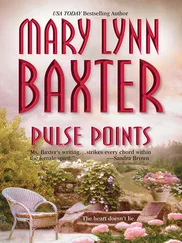Persuading the Europeans, Russians, and Chinese to agree on the sanctions was a diplomatic achievement. But every member faced the temptation to split off and take commercial advantage. I frequently reminded our partners about the dangers of a nuclear-armed Iran. In October 2007, a reporter asked me about Iran at a press conference. “I’ve told people that if you’re interested in avoiding World War Three,” I said, “it seems like you ought to be interested in preventing them from having the knowledge necessary to make a nuclear weapon.”
My reference to World War III produced near hysteria. Protestors showed up outside my speeches with signs that read, “Keep Us Out of Iran.” Journalists authored breathless, gossip-laden stories portraying America on the brink of war. They all missed the point. I wasn’t looking to start a war. I was trying to hold our coalition together to avoid one.
In November 2007, the intelligence community produced a National Intelligence Estimate on Iran’s nuclear program. It confirmed that, as we suspected, Iran had operated a secret nuclear weapons program in defiance of its treaty obligations. It also reported that, in 2003, Iran had suspended its covert effort to design a warhead—considered by some to be the least challenging part of building a weapon. Despite the fact that Iran was testing missiles that could be used as a delivery system and had announced its resumption of uranium enrichment, the NIE opened with an eye-popping declaration: “We judge with high confidence that in fall 2003, Tehran halted its nuclear weapons program.”
The NIE’s conclusion was so stunning that I felt certain it would immediately leak to the press. As much as I disliked the idea, I decided to declassify the key findings so that we could shape the news stories with the facts. The backlash was immediate. Ahmadinejad hailed the NIE as “a great victory.” Momentum for new sanctions faded among the Europeans, Russians, and Chinese. As New York Times journalist David Sanger rightly put it, “The new intelligence estimate relieved the international pressure on Iran—the same pressure that the document itself claimed had successfully forced the country to suspend its weapons ambitions.”
In January 2008, I took a trip to the Middle East, where I tried to reassure leaders that we remained committed to dealing with Iran. Israel and our Arab allies found themselves in a rare moment of unity. Both were deeply concerned about Iran and furious with the United States over the NIE. In Saudi Arabia, I met with King Abdullah and members of the Sudairi Seven, the influential full brothers of the late King Fahd.
“Your Majesty, may I begin the meeting?” I asked. “I’m confident every one of you believes I wrote the NIE as a way to avoid taking action against Iran.”
No one said a word. The Saudis were too polite to confirm their suspicion aloud.
“You have to understand our system,” I said. “The NIE was produced independently by our intelligence community. I am as angry about it as you are.”
The NIE didn’t just undermine diplomacy. It also tied my hands on the military side. There were many reasons I was concerned about undertaking a military strike on Iran, including its uncertain effectiveness and the serious problems it would create for Iraq’s fragile young democracy. But after the NIE, how could I possibly explain using the military to destroy the nuclear facilities of a country the intelligence community said had no active nuclear weapons program?
I don’t know why the NIE was written the way it was. I wondered if the intelligence community was trying so hard to avoid repeating its mistake on Iraq that it had underestimated the threat from Iran. I certainly hoped intelligence analysts weren’t trying to influence policy. Whatever the explanation, the NIE had a big impact—and not a good one.
I spent much of 2008 working to rebuild the diplomatic coalition against Iran. In March, we were able to get another round of UN sanctions, which banned countries from trading with Iran in dual-use technologies that could be employed in a nuclear weapons program. We also expanded our missile defense shield, including a new system based in Poland and the Czech Republic to protect Europe from an Iranian launch.
At the same time, I worked to speed the reform clock by meeting with Iranian dissidents, calling for the release of political prisoners, funding Iranian civil-society activists, and using radio and Internet technology to broadcast pro-freedom messages into Iran. We also explored a wide variety of intelligence programs and financial measures that could slow the pace or increase the cost of Iran’s nuclear weapons program.
I regret that I ended my presidency with the Iranian issue unresolved. I did hand my successor an Iranian regime more isolated from the world and more heavily sanctioned than it had ever been. I was confident that the success of the surge and the emergence of a free Iraq on Iran’s border would inspire Iranian dissidents and help catalyze change. I was pleased to see the Iranian freedom movement express itself in nationwide demonstrations after Ahmadinejad’s fraudulent reelection in June 2009. In the faces of those brave protesters, I believe we saw the future of Iran. If America and the world stand with them while keeping the pressure on the Iranian regime, I am hopeful the government and its policies will change. But one thing is for certain: The United States should never allow Iran to threaten the world with a nuclear bomb.

Iran was not the only nation endangering the freedom agenda by seeking nuclear weapons. In the spring of 2007, I received a highly classified report from a foreign intelligence partner. We pored over photographs of a suspicious, well-hidden building in the eastern desert of Syria.
The structure bore a striking resemblance to the nuclear facility at Yongbyon, North Korea. We concluded that the structure contained a gas-cooled, graphite-moderated reactor capable of producing weapons-grade plutonium. Since North Korea was the only country that had built a reactor of that model in the past thirty-five years, our strong suspicion was that we had just caught Syria red-handed trying to develop a nuclear weapons capability with North Korean help.
That was certainly the conclusion of Prime Minister Olmert. “George, I’m asking you to bomb the compound,” he said in a phone call shortly after I received the report.
“Thank you for raising this matter,” I told the prime minister. “Give me some time to look at the intelligence and I’ll give you an answer.”
I convened the national security team for a series of intense discussions. As a military matter, the bombing mission would be straightforward. The Air Force could destroy the target, no sweat. But bombing a sovereign country with no warning or announced justification would create severe blowback.
A second option would be a covert raid. We studied the idea seriously, but the CIA and the military concluded that it would be too risky to slip a team into and out of Syria with enough explosives to blow up the facility.
The third option was to brief our allies on the intelligence, jointly expose the facility, and demand that Syria shutter and dismantle it under the supervision of the IAEA. With the regime’s duplicity exposed, we could use our leverage to press Syria to end its support for terror and meddling in Lebanon and Iraq. If Syria refused to dismantle the facility, we would have a clear public rationale for military action.
Before I made a decision, I asked CIA Director Mike Hayden to conduct an intelligence assessment.
He explained that the analysts had high confidence that the plant housed a nuclear reactor. But because they could not confirm the location of the facilities necessary to turn the plutonium into a weapon, they had only low confidence of a Syrian nuclear weapons program.
Читать дальше












